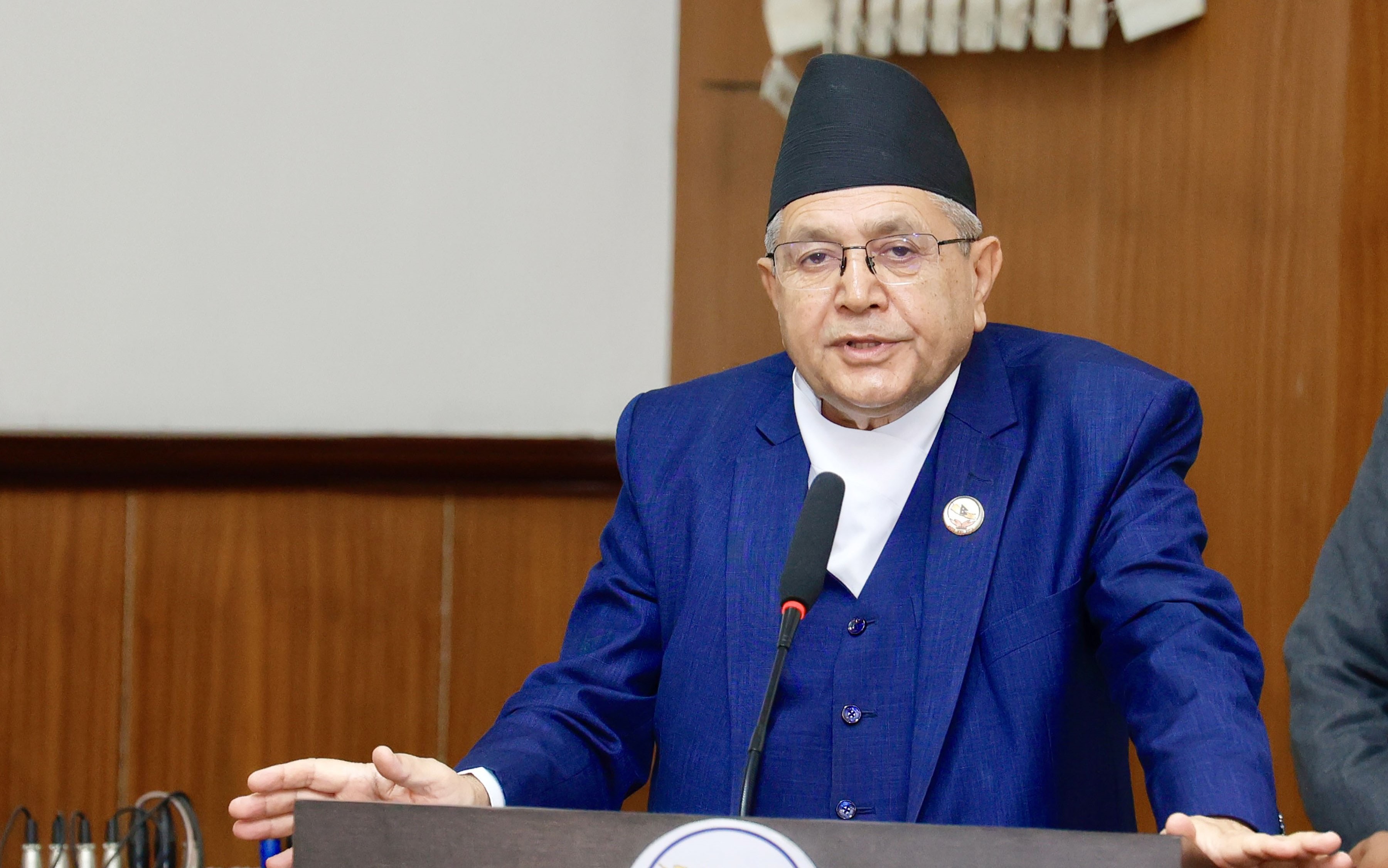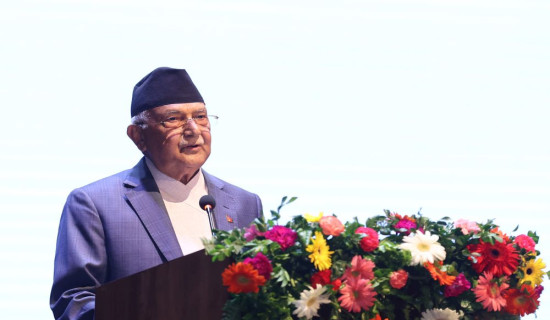- Thursday, 31 July 2025
Increasing arrears concerning in view of economic discipline: Speaker Ghimire
Kathmandu, July 6: The Public Account Committee, the House of Representatives, has said that a growing size of arrears is not only about the absence of proper utilisation of the State coffers but also serves as a way of decreasing civic trust towards public entities.
During a national workshop on arrears organised by the Committee here today, it has been concluded that controlling expenditures that are carried out in violation of the law is one of the significant aspects of the national economy. "The rising arrears pose a significant question to the nation's economic good governance," it was said, underlining the essentiality of proper management of public resources.
It may be noted that the 62nd annual report of the Auditor General has calculated the arrears until fiscal year 208-81 BS at over Rs 733 billion. The updated figure of arrears is more by 9.34 per cent higher compared to the previous year.
During the event, Committee President Rhishikesh Pokhrel said the existing size of arrears, which is around 12 per cent in ratio to the Gross Domestic Product, is concerning. This is not just a number; instead of it is significantly related to good governance and fiscal discipline, he said, underlining the need for policy reforms and the effective implementation of law with the use of information technology and coordinated efforts among the bodies concerned to address the situation.
Addressing the event, Speaker Devraj Ghimire stressed the need for a systematic way of expenditures with a systematic and transparent record-keeping system. "
Accounting system of the State's income and expenditures carries a significant meaning during the operation of the State, he said, underlining the need for harmony and coordinated efforts among the three-tier people's representatives to ensure that every record keeping of the State's income and expenditure is well-managed, transparent and effective.
Taking reference from the 62nd annual report of the OAG, the Speaker said a rise in the arrears figure is concerning in view of economic good governance.
Deputy Speaker Indira Rana stressed the need for integrity, honesty and transparency on the part of all bodies concerned in the operation of the State coffers. She also echoed the need of economic discipline in all aspects of the operation of the State resources, including its record keeping and auditing.
Auditor General Toyam Raya stated that while arrears suggest a lack of financial discipline, not all arrears necessarily involve unlawful expenditure.
In the last fiscal year, the Office of the Auditor General (OAG) audited 5,700 offices and identified arrears amounting to Rs 733 billion. These arrears include amounts to be recovered, regularised, or supported with proper documentation, as well as issues related to unverified procurements, unassigned responsibilities, pending reimbursements, and outstanding advances.
Raya added that auditors are instructed to maintain financial discipline and, wherever possible, to stay in government accommodations during field assignments. He further clarified that it is a misconception to assume that every instance of arrears implies irregularities or corruption.
As per Article 294 of the Constitution, the OAG, being a constitutional body, is required to submit its annual report to the President. The President, in turn, presents the report to the Federal Legislature through the Prime Minister. The report is then reviewed and discussed by the Public Accounts Committee (PAC).
PAC Secretary Eakram Giri stated that the Committee is actively working to promote transparency and accountability in public spending. He added that the Committee's focus is to identify the underlying nature of arrears and recommend effective measures for their control. (RSS)




-square-thumb.jpg)
-square-thumb.jpg)
-original-thumb.jpg)
-square-thumb.jpg)


-original-thumb.jpg)
-original-thumb.jpg)
-original-thumb.jpg)

